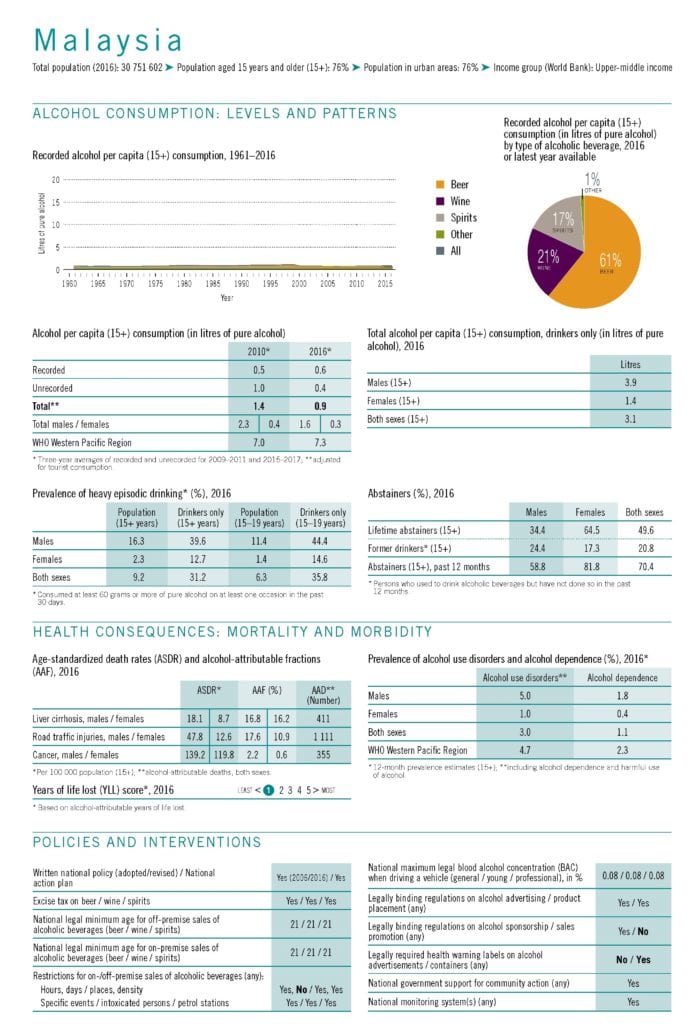Kuala Lumpur City Hall has improved the alcohol laws in the capital city by reducing alcohol availability. The new and improved alcohol law is implemented from November 1, 2021 and stipulates:
- The sale of hard liquor is prohibited in grocers, sundry shops, convenience stores and Chinese medicine halls.
- The above places can still sell beer between 7:00 AM and 9:00 PM, given that beer products are kept separately from other goods.
- Alcohol sale is prohibited in front of police stations, places of worship, schools and hospitals.
The new law was first suggested about a year ago and was set to come into force from October 1, 2021. However, some opposition to the laws led to postponing its implementation. After political leaders conducted further discussions with various parties the laws came into effect from November 1, 2021.
Seven ministers from the capital have opposed the laws and called on City Hall and the Federal Territories Minister to repeal it. The ground for the opposition to the alcohol policy improvements was that it was not fair for non-Muslim people of Malaysia. But the claim is unfounded for three reasons:
- Anyone in the city can still access alcohol in other places, such as restaurants, pubs, bars, hotels, commercial complexes, warehouses, supermarkets, and hypermarkets.
- There are many other countries which are not primarily Muslim that limit the places that can sell alcohol. For example, in Sri Lanka alcohol is not sold in grocery shops either and is limited to licensed outlets such as pubs, bars, restaurants and nightclubs. In Western countries with modern and evidence-based alcohol policy models the availability of alcohol is also limited in a common sense approach. For example in Nordic countries, such as Sweden, all off-premise alcohol that is not light beer is sold through a government-run alcohol retail monopoly that removes the profit maximization interest from alcohol retail and puts the public interest first.
- Reducing alcohol availability through limiting alcohol sales is a World Health Organization (WHO) recommended policy action to prevent and reduce alcohol harm globally.
Alcohol policy in Malaysia
Malaysia has low levels of alcohol use generally and in comparison to the WHO Western Pacific Region. However alcohol harm is still present. About a third (35.8%) of youth alcohol users between 15 to 19 years of age binge on the substance. About 5% of the male population suffers from alcohol use disorders.
Malaysia implements several WHO recommended alcohol policy solutions, such as regular increases of alcohol taxes and local measures to raise prices of locally brewed alcohol. During COVID-19, Malaysia was a country that categorized alcohol as “non-essential”. Thus, reducing availability and harm caused by alcohol to contain COVID-19.
Sources
The Sun Daily: “Liquor sale ban: Discussions still ongoing — FT Minister“
Malay Mail: “KL MPs ask FT minister to reverse liquor sale ban, say against Keluarga Malaysia ideals“
